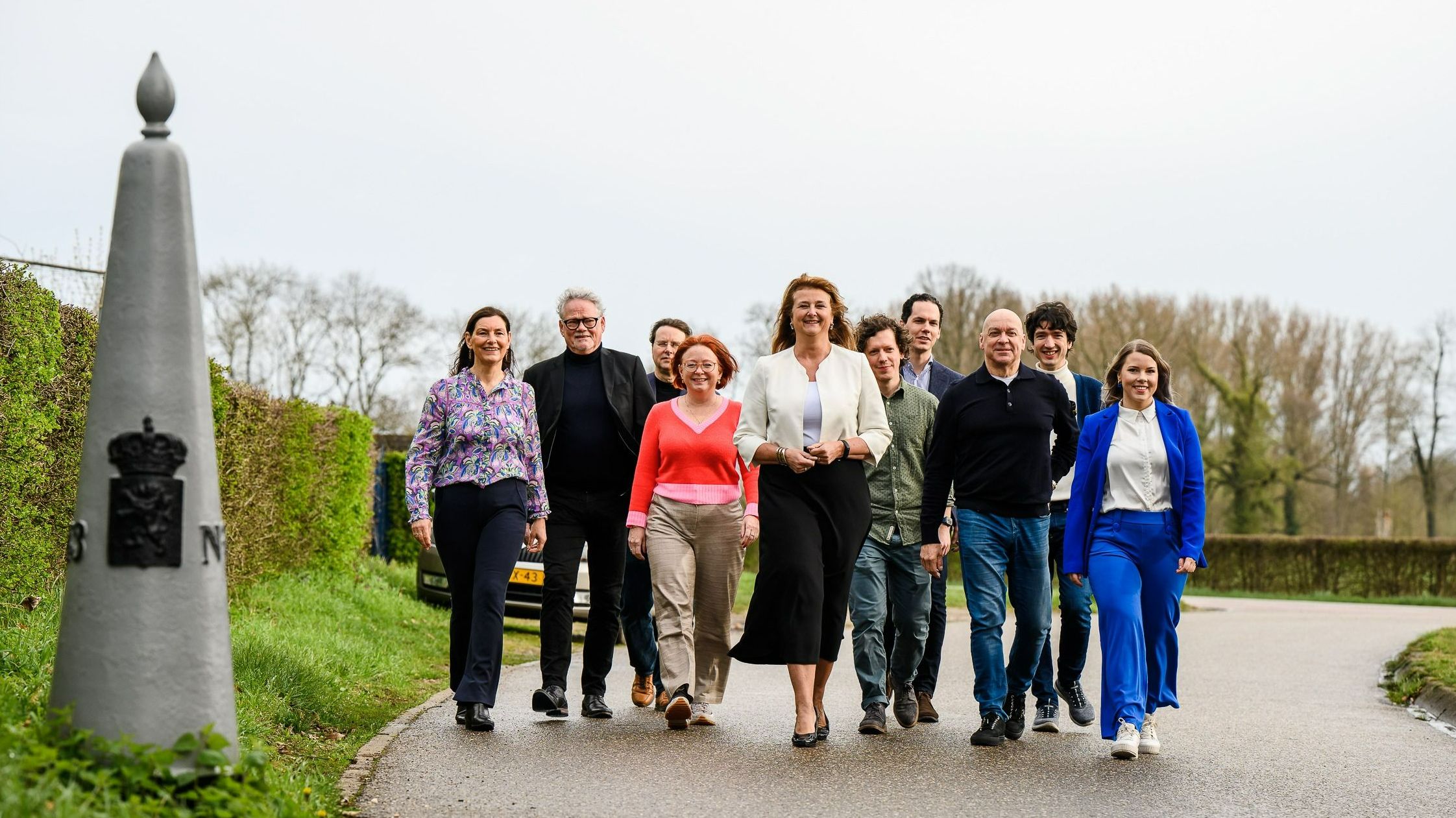 |
| Foreword |
In the Netherlands, last month was marked by the Provincial Elections. In the ITEM Reflection, ITEM analysed the political plans in the border provinces. As follow-up on the Reflection, ITEM also has made a Comment on the results of the Provincial Election and commented on the way forward for cross-border cooperation.
Still, while cro ss-border cooperation can be regarded as a common topic and undisputed activity among the biggest political parties, work remains in order to make it concrete, tangible and structural. ITEM's various studies have repeatedly shown that a good organisation of cross-border cooperation is precisely what is needed and it cannot be taken as a given. In this organisation, the provinces have an important and proactive role to play, both in a Euroregional context with neighbouring regions and in relation to the state, the Benelux and Europe. The cross-border dimension in the coalition formation should therefore have a more dominant position. ss-border cooperation can be regarded as a common topic and undisputed activity among the biggest political parties, work remains in order to make it concrete, tangible and structural. ITEM's various studies have repeatedly shown that a good organisation of cross-border cooperation is precisely what is needed and it cannot be taken as a given. In this organisation, the provinces have an important and proactive role to play, both in a Euroregional context with neighbouring regions and in relation to the state, the Benelux and Europe. The cross-border dimension in the coalition formation should therefore have a more dominant position.
Horizontal integration
Upon publication of the coalition agreements in the border provinces, ITEM will again provide a reflection. Because indeed the provinces have an important role to play in what we would like to call horizontal integration. Horizontal Integration acts as the cross-border connection between neighbouring states and governments in the European integration processes. The idea of Horizontal Integration and the question what it can mean for the internal borders in the EU is also central in ITEM’s upcoming workshop on 12 May. It is another step of ITEM to contribute to a better functioning cross-border territory.
Prof. Dr. Anouk Bollen, Director ITEM.
|
|
|
|
|
|
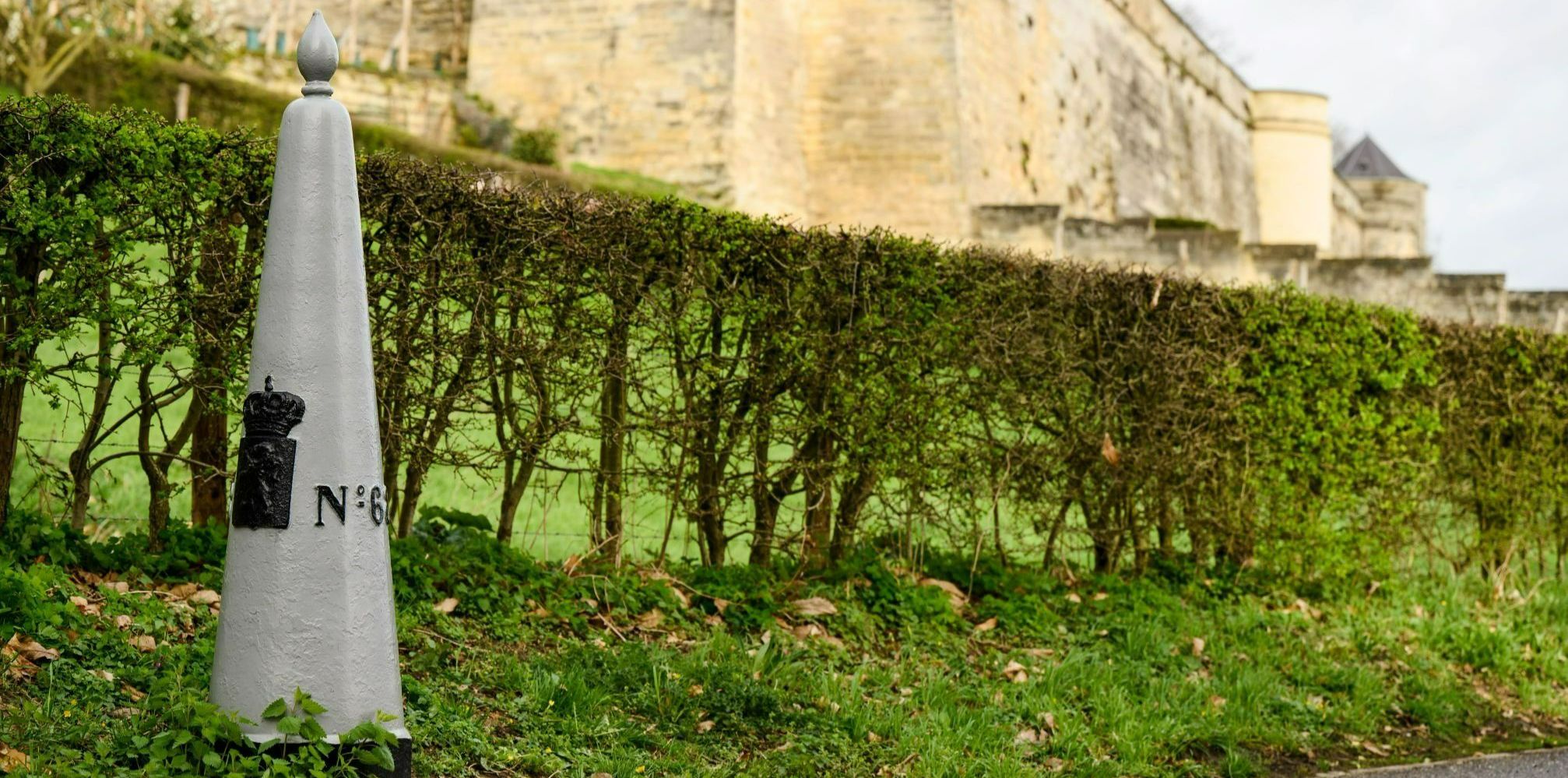 |
| ITEM Comment: Results Provincial Elections |
All the votes have been counted and the election results for each province have been determined. On 29 March 2023, the new members of the Provincial Council were inaugurated. In all provinces, BBB became the largest party, including in the border provinces. Together, the cooperating parties of GroenLinks and PvdA are the second largest after BBB in many border provinces. Provided that the parties actually engage in substantive cooperation. Only in the province of Zeeland do GroenLinks and PvdA actually participate as a joint party.
What do the shifts of parties in the Provincial Council mean for cross-border cooperation? How do the largest parties view cross-border cooperation? What advice can be given to the members of the States and, when forming a new provincial government, to the Provincial Executive? ITEM provides comments on these issues. |
|
|
|
|
|
|
| Invitation: Next ITEM Horizontal Integration |
12 May 2023 10:30 – 17:00, Maastricht
During the ITEM Annual Conference 2022 in Groningen attention was already placed at the idea of Horizontal Integration. European Integration was and is widely seen as a vertical process, where EU policies and legislation trigger integration from Brussels to the local level. Less attention has so far been paid to integration processes at the border of two or more neighboring countries. This is the horizontal dimension of integration.
This Next ITEM focusses on the question: How to get to grips with the particular integration challenges at the internal borders of the EU? With two keynotes and panels we will discuss the relevance of the cross-border dimension in integration processes and the question of legitimacy and public participation.
You are highly invited to join this Next ITEM! |
|
|
|
|
|
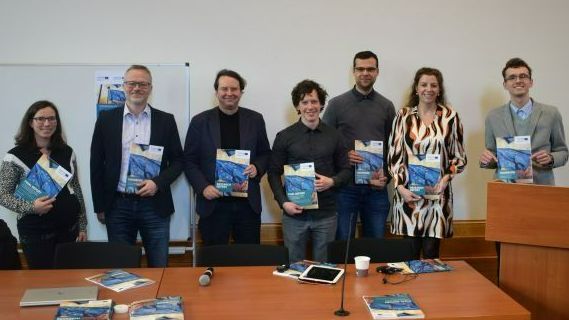 |
| CrossQuality: How to measure the quality of cross-border cooperation |
How good is the cooperation of public sector bodies, companies or citizens in the cross-border region? How can we describe the quality of cross-border networks and entities? And finally: what are precisely the positive effects of an Interreg programme on the different aspects of cooperation and governance across borders?
These were the central questions of the Crossquality project. From March 2021 to March 2023, ITEM als lead partner, together with RWTH Aachen, Hasselt University, University of Liège and EGTC Euregio Meuse-Rhine, worked on the development of a methodology to measure the quality of cross-border cooperation related to Interreg programmes.
On 16 March the Final event took place, when the three reports were published. It includes a research report with the academic background of the methodology, a handbook describing how to apply the assessment and a final report where a first assessment for the Interreg programme Euregio Meuse-Rhine was made as a pilot. The three reports are available here.
Interested in the presentation? |
|
|
|
|
|
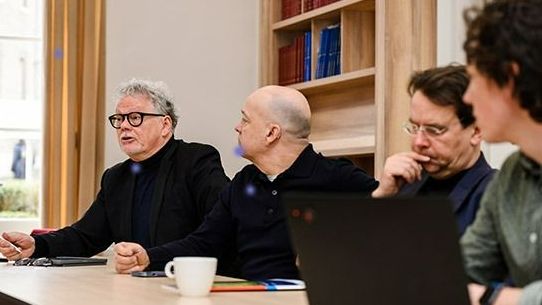 |
| Supply Chain Seminar |
| The 2nd edition of the seminar ‘International Supply Chain Taxation’, took place the 8th of March in Maastricht. During the well-attended seminar, various speakers of international standing addressed the most current and important topics in international trade and taxation, including CBAM, sustainability and trade, excise, customs and IT, and the interplay of VAT and customs duties on importation. The seminar was organised by ITEM (Institute for Transnational and Euregional cross border cooperation and Mobility) and supported by the Indirect Tax Fund. |
|
|
|
|
|
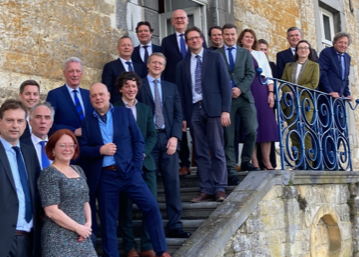 |
| Recap ITEM/TEFAF meeting |
As part of the ITEM Annual Cycle, the expertise centre ITEM traditionally organizes an annual small-scale meeting during the week of The European Fine Art Fair (TEFAF) in governmental company on current affairs regarding cross-border effects in large-scale social issues and cross-border governance. This meeting is the preparation of the annual Cross-Border Impact Assessment and events as the ITEM/HNP event on 27 September in Brussels and the Annual Conference on 17 November in Den Haag.
It was a productive meeting, where the current state of affairs of the cross-border governance developments in North-West Europe was discussed as well as the cross-border effects of infrastructure projects. Regarding governance structures, developments between Flanders and the Netherlands were compared with experiences of the Grande Région. A productive debate arose on what scale cross-border cooperation should take place in the most efficient way, as some are to abstract and others are too local to make the desired impact. Great attention was also placed on current infrastructure projects to connect neighbouring countries and boost sustainable mobility.
As a result, the parties were committed to the idea that ITEM will make a dossier in the framework of the Cross-Border Impact Assessment on the question of cross-border infrastructure projects. What are the obstacles and where are the competences embedded? What instruments are needed to make it possible? These questions will come back with the ITEM/HNP meeting and the Annual Conference. |
|
|
|
|
|
 |
| ITEM in the media and contributions |
On 3 February 2023, at the Grote Taaldag Utrecht, ITEM researcher Daan Hovens' thesis came joint second in the annual dissertation competition of AVT/Anéla. Read more here!
|
Anouk Bollen joined the panel during the Kick-Off of the Dutch presidency of the Benelux Union on 9 February 2023.
|
In February 2023, ITEM researcher Daan Hovens' article for the Journal of Sociolinguistics has been officially published in the print version of this scientific journal. Read it here!
|
On 20 February 2023, Susanne Sivonen was interviewed by Euractiv on her research in the EMRLingua project. Find the interview on Euractiv.
|
In March 2023, a blog article on ITEM researcher Daan Hovens' thesis was published in the monthly MVT newsletter of the National Platform for Languages. Read it here!
|
On 6 April 2023, ITEM researcher Sander Kramer spoke at the well-attended online pension expert session (part of the ITEM/Montae Webinar series). Find the presentations here.
|
Pim Mertens was member of the panel during the BENEGO Symposium on cross-border labour market of 29 March 2023.
|
Martin Unfried presented on the online symposium of INTERACT on the quality of cooperation of 29 March 2023.
|
The ITEM Reflection on the Provincial Elections yielded attention in several media platforms, such as De Limburger, Binnenlands Bestuur, Trouw and Algemeen Dagblad.
|
An opinion of ITEM on the Provincial Elections was published in Reformatorisch Dagblad.
|
Pim Mertens published an opinion in Trouw based on the Cross-border Impact Assessment on firework.
|
|
|
|
|
|